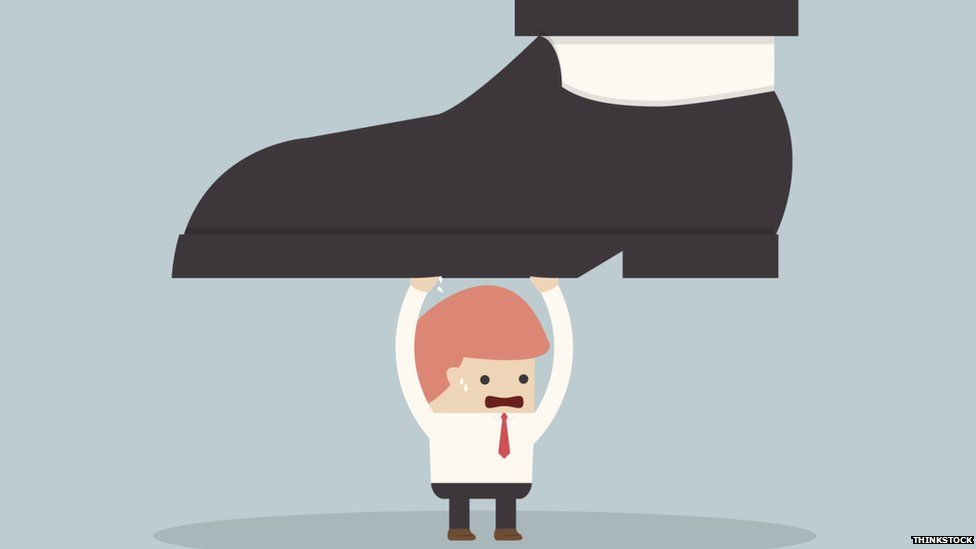
Being bullied can make you depressed, isolated and hopeless – but could it be you who is making people feel this way?
After all, for every person being bullied, there must be a bully picking on them.
The Children’s Society recently reported that bullying was one of the biggest causes of unhappiness in young people aged between eight and 12 – while other research shows bullying peaks among 14 and 15-year-olds.
So how do you know if you are a bully?
How do I know if I’m a bully?
“It can often be quite difficult to know whether you’re bullying, purely because nobody likes to assign that sort of negative label to themselves,” says Suzie Hayman, from the charity Bullying UK.
“They don’t want to be a nasty person and so if you’re doing something that actually is upsetting someone else, you may excuse it to yourself.”
She says you may think your behaviour is coming across as “banter” or that you don’t mean anything by it, but that you need to put yourself in the other person’s shoes.
There is no legal definition of bullying but it usually is defined as behaviour that happens frequently over time and is meant to hurt someone.
It can be emotional or physical, in person or online – or a combination of any of these.
BBC Advice has more help and information if you are affected by bullying.
It can also be aimed at certain people because of their race, religion, gender or sexual orientation, appearance or disability, says Bullying UK.
There are no official statistics on the number of people who bully, or who are bullied in the UK.
Various studies suggest very different figures. The latest data from ChildLinesuggests almost 45,000 children in the UK called them about bullying between 2012 and 2013.
Meanwhile anti-bullying charity Ditch the Label says seven out of 10 young people in the UK (roughly five million teenagers) say they have been bullied online – that’s according to their cyberbullying survey of 2013.
I get bullied – can I also be a bully?
Many young people tell Newsbeat that the “best form of defence is attack”.
One 16-year-old girl from Devon, says: “I don’t think you’re bullying them, I think you’re just sticking up for yourself. Because if someone comes at you, you’re going to do something.
“To other people it can seem that you’re doing the same thing [bullying], or you’re just the same as them.”

Another 16-year-old from Devon tells Newsbeat that people who are bullies have the social power and that she has found herself supporting and befriending them in order to avoid being a target.
“Otherwise you then become that person that everyone laughs at,” she explains.
“Not only is it possible to be both bullied and be a bully, it’s often very common,” says Ms Hayman.
“People go from one role to the other and back again. They themselves may be having a tough time at home, a tough time from siblings say, or parents, or in school.”
But, she says: “If you attack as a means of defence, all you’re doing is perpetuating the cycle, you’re making somebody else feel bad.”
How do you stop bullying?
“Perpetrators are usually bullying for some reason,” says Adrienne Katz, of the Bullying Intervention Group, a national award scheme.
“The worse they get [at bullying] the more serious the problems in their life usually are. It’s usually a flag-waver for something else.”
If you are bullying other people, it may be that you need to seek help for yourself from a person or organisation that you trust.
“It’s certainly possible to make amends,” says Ms Hayman.
“Restorative justice is getting the person who’s done the [bullying] and the person who’s had to go through it together.”
This gives a chance for the person who has been bullied to explain the impact it has had on them.
“It’s actually quite transformative,” says Ms Hayman.
“If it’s a genuine apology it can really restore the situation.”
Ms Katz says: “Sometimes the leader qualities in a bully can be used positively and they can be very successfully turned round to become protectors.”
Source: BBC.co.uk
